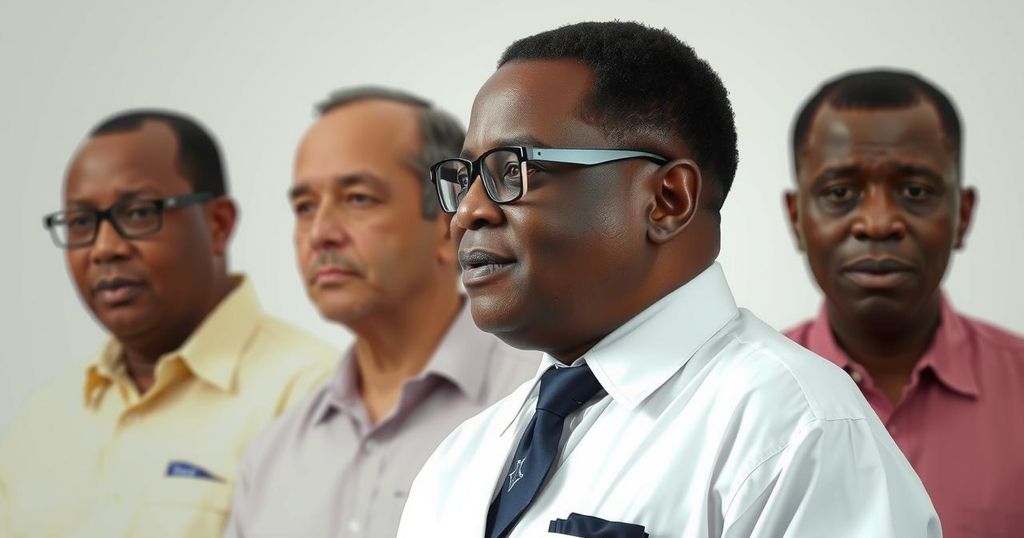Ghana’s Election: A Critical Choice Amidst Economic Turbulence

Ghana’s election pits former President John Mahama against current Vice President Mahamudu Bawumia amid severe economic distress. The election draws attention to key issues like inflation, unemployment, and environmental concerns, especially affecting the youth. Over 700,000 first-time voters are poised to shape the outcome, with analysts predicting a tight contest between the two major political parties, N.P.P. and N.D.C. Voting occurs on December 7, with results expected the same evening, though official confirmation may take longer.
Ghana is approaching a pivotal election that highlights the choice between a familiar political face and a new leadership perspective amidst a dire economic climate. Voters will select between former President John Dramani Mahama, seeking to return to power after a previous single term, and his rival, Vice President Mahamudu Bawumia, who is positioned to continue the policies of the current administration. The election is set against a backdrop of significant economic distress, heightened inflation, rising unemployment, and widespread discontent among the populace, particularly the younger generation, who are increasingly vocal about environmental issues and their future prospects.
Ghana, noted for being Africa’s largest gold producer, is in the midst of an economic crisis viewed as the most severe in a generation. Both candidates hail from the north of the country, marking a historic first for a predominantly Christian nation. Voter engagement has surged, especially among young people, with over 700,000 first-time voters eager to impact the electoral process. Environmental concerns, particularly regarding illegal mining activities, have ignited protests, reflecting a palpable frustration with the current government’s responses.
The nation, a solid democratic stronghold in West Africa, has historically maintained stability amidst regional turmoil. However, underlying security concerns persist, informed by the country’s geopolitical significance. Polling indicates that Mr. Mahama is favored to win the election, despite the challenges facing Mr. Bawumia. Voting will be conducted on Saturday, December 7, with results expected to emerge shortly thereafter, albeit official confirmation may require several additional days. A runoff may occur if no candidate secures a definitive majority.
The upcoming election in Ghana is set against a backdrop of intense economic hardship, characterized by soaring inflation, debt defaults, and rising poverty rates. Ghanaians have experienced diminishing living standards, leading to public discontent and increasing political activism, particularly among youth. Historically, the country has successfully managed its democratic processes, making it a focal point for international attention in West Africa. Key themes in this election revolve around economic recovery and stability, with both major political parties— the ruling New Patriotic Party (N.P.P.) and the opposition National Democratic Congress (N.D.C.)— vying for control amid significant public scrutiny of their past performances.
The forthcoming election in Ghana encapsulates a critical decision for the electorate, balancing a return to a previous administration against the continuation of the current leadership. With escalating economic challenges and a particularly engaged youth demographic, the election outcome could significantly shape the country’s trajectory. Analysts predict a competitive landscape, with Mr. Mahama positioned strongly against Vice President Bawumia. The election results will illuminate the public’s appetite for change or stability in the face of substantial economic adversity.
Original Source: www.nytimes.com







